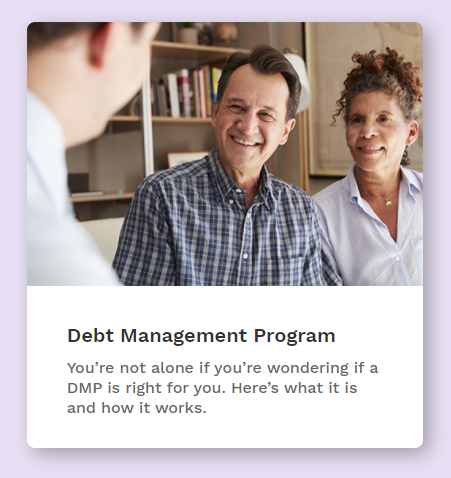How to Communicate with Collection Agents & Regain Control of Your Pay Cheque
Q: I’m about 4 months behind on my credit card payments and now a collection agency is leaving messages on my cell phone every day. My problems started when my roommate left to move back in with his parents. The lease is in my name and isn’t up for another 6 months so I’m stuck paying rent I can’t afford. I called the collection agent back and he demanded payment in full. If I don’t come up with the money in 7 days he said they’d look at starting legal action. He also wanted a lot of other details from me which he said I am obligated to provide. I ended the call and told them I’d do what I can to come up with the money. The truth is I don’t have the money and I’m not sure what to do. ~Keith
A: Receiving a collection call from a collection agency is very stressful, especially when they catch you off guard and imply that they may pursue legal action against you. Fortunately there are strict rules and regulations in most provinces that govern the actions of collection agencies and their collectors. It’s in your best interest to understand these rules and know your rights and responsibilities before you speak with the agency again.
To debunk some myths and to help you understand how debt collection works, click a link to jump down to the information you’re looking for, or follow along as I explain:
- What collectors can and cannot do
- What you can do if they break the rules, maybe even harass or threaten you
- How to avoid promises you can’t keep, just to get them off the phone
- Giving yourself time to come up with a realistic payment plan
- Determining where you stand financially and what to do if you feel overwhelmed
- How to speak with a debt collection agent effectively
- What to do if you can’t follow through with the payments you promised to make
1. Understand What Debt Collectors Can & Cannot Do
In most provinces, the legislation permits an agency to make one call to a debtor’s place of work in order to verify their employment and/or to speak with the debtor. If the debt collector is told not to call the place of employment in the future, they must abide by this request. Debt collectors are allowed to contact a person on their personal phones during specified hours and days of the week.
What debt collectors are not allowed to do is harass or threaten a person as a means of getting them to pay. Harassment comes in many different forms; it could be considered harassment if you are receiving multiple calls from a collection agent each day, or it could be them demanding that you borrow money from family or friends or take out a high interest loan to pay what you owe them.
With respect to threatening behavior, debt collectors cannot threaten that they will do something that they are not authorized or legally able to do. It’s also important to understand that there is a big difference when a debt collector states that they may look at taking legal action versus that they are going to start legal proceedings against you.
It’s easy for someone who is stressed, caught off guard and rattled by a phone call to misunderstand and do something they may regret, e.g. take out an expensive loan rather than work out an affordable payment plan. This is why it is so important to understand your rights and the rules that collection agencies and collectors must follow.
2. What to Do if a Collection Agency or Debt Collector Breaks the Rules
If a collection agency or debt collector fails to operate within government regulations, you have the right to bring this to their attention. You also have the right to file a complaint against the collector with the appropriate consumer protection agency in the province where you live. It won’t make the debt go away, but it will help reduce your stress and allow you some breathing time to review your situation and explore your options to get credit card debt relief.
3. Don’t Make a Debt Repayment Promise You Can’t Keep
It’s important to understand the motivation behind the collection agency and debt collector. The agency and the collector are paid on commission, which means it’s in their best interest to get your account paid in full in as short a time as possible. To do this they will ask you to explore different avenues to find the funds to pay your account and will look to set tight deadlines with you as a means of motivating you to make the repayment of your account a top priority.
While it’s important to take responsible action to resolve your debt problem, it’s more important to review your overall financial picture first. You need to determine what you are able to do, instead of doing what the debt collector wants you to do. The worst thing you can do is agree to a demand or make a promise you can’t fulfill just to get the collector off the phone.
4. How to Make a Promise That You Can Keep – Take the Time to Come Up with a Realistic Plan
The more difficult but better course of action is to advise the collector that you first need time to review your overall financial situation. Then get back to the collector with a plan outlining what you can do to resolve your account. It’s also reasonable to advise the collector that you will need up to 5 business days to accomplish this and that during this time you do not want to be contacted by the collector. If the collector doesn’t agree to this, ask to speak with their manager. Also ask for the name and debt collection license number of the manager that you speak with.
In addition to following provincial regulations, collection agencies must also abide by the collection guidelines of the credit card company. While your account with your credit card company is in arrears, you are still a customer of the credit card company and they want to minimize any ill feelings you may have towards them. Before you speak with the collector again I encourage you to follow the motto of Scouts Canada – Be Prepared.
5. Determine Where You Stand Financially
Here are some steps you can take to help get a better picture of your overall financial situation:
- Itemize your current take home income each month and all of your regular monthly expenses. Don’t forget to include allocations for seasonal and annual expenses along with any other debt payments you have.
- Review all of your expenses to determine where you may be able to cut back on your spending. As a suggestion, look to cut spending by 10% as this will free up additional funds to address your debt situation.
- Create a monthly budget based upon your revised expenses and monthly allocations for seasonal/annual expenses. Do you have money left over that could be used to pay down your debt? If not, you may need to look at other options to reduce your expenses, like finding a new roommate or talking to your landlord about terminating the lease early.
- List all of your assets (things you own) and liabilities (what you owe) to determine if you have a positive or negative net worth. Keep in mind that RRSP contributions should never be cashed in to pay a debt; they are meant for your retirement and recent changes in our laws protect all contributions from creditors with the exception of contributions you have made within the last year.
If you find this a little overwhelming, I encourage you to contact an accredited and licensed credit counselling agency. A credit counsellor will be able to review your overall situation as well as outline all of the steps you can take in the short and long term to address your situation.
6. Preparing to Speak with a Debt Collector
Once you understand your options and know how you intend to resolve your account, it’s time to prepare for your call to the collector. If you’ve chosen to work with a credit counselling agency to help you address your overall debt situation, all you will need to do is advise the collector of this and provide them with the name of the credit counselling agency, their telephone number and any reference number you have been given. The credit counselling agency can confirm to the collector that you have sought their help but they will not release any additional information without your consent. Credit counselling organizations are very effective at negotiating with collection agencies to gain their acceptance of a repayment plan.
If you intend to present a payment plan to the collection agency yourself, you will need to be able to back up your plan with an overview of your income and expenses. Be prepared for the debt collector to try and coerce you into making a higher payment arrangement. They could question any and all of the information you give them. However, you must look after your best interests and be firm in presenting your plan. Don’t fall prey to any tactic that they can’t accept your offer; if you’re not getting anywhere with the collector ask to speak to their immediate manager until you get a firm agreement.
Budgeting Calculator That Helps You Juggle the Numbers Until they Balance
7. Stick to Any Payment Arrangement You Make
Once an agreement is in place, stick to it. If you have agreed to make a specific payment amount by a certain date each month, ensure you follow through. If there is a reason you will be delayed or can’t come up with the total agreed upon payment one month, contact the collector ahead of time and outline what you can do and how you will catch up. You will also want to monitor the account balance as you make payments, so let the collection agent know that you will require a statement of account.
The Bottom Line on Communicating Effectively with a Collection Agency to Stop Collection Calls
Timely and effective communication will help stop collection calls and creditor harassment. In all probability they won’t like what you have to tell them. Quite frankly though, it’s not about them, it’s about you and your financial future. Getting all the facts and understanding the long term implications of different courses of action will put you in control of determining what’s right for you.
Related articles:
What to Do If You’ve Received a Notice of Claim and are Being Sued
Everything You Need to Know About Dealing with Collection Agencies
What to Do When Money is Tight or You’re Facing Reduced Income







0 Comments